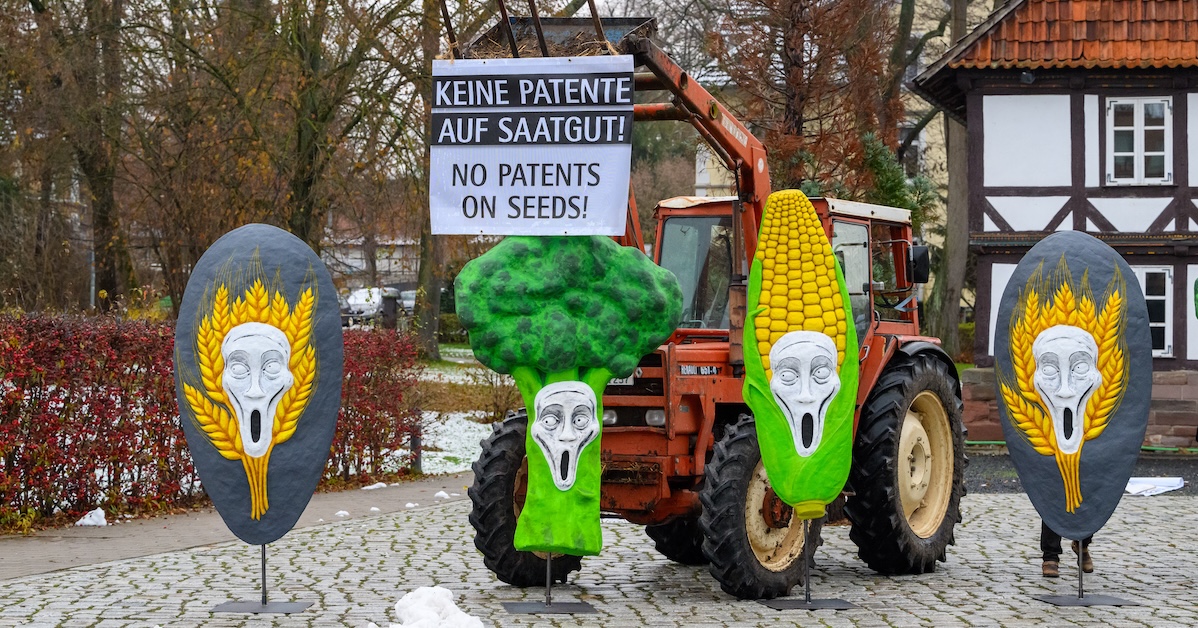 Precedent case shows new rule does not solve problems
Precedent case shows new rule does not solve problems
The decision of 6 November by the European Patent Office (EPO) with regard to an opposition filed against a patent (EP3560330) granted to the German company KWS only provides for minor changes, reports No Patents on Seeds! The EPO was supposed to apply a new rule in this case that is intended to exclude patents on plants obtained from classical breeding. However, this new decision means that the patent will still cover the maize plants obtained from the selection of naturally occurring gene variants. No Patents on Seeds! is demanding that the EU take strong action to clarify that patent law only allows patents on methods of genetic engineering. Current EPO practice needs to be stopped.
“It is unethical to use loopholes in patent law for the misappropriation of natural resources. Such patents extensively hinder or block independent breeding and are a major threat to our own breeding activities. Our seeds have been widely used by farmers in Europe for many years. We are even the market leader in some important traits. Nevertheless, our seeds might no longer be available in near future,” says Grietje Raaphorst-Travaille from the Dutch company Nordic Maize Breeding (NL). “We are demanding that traditional breeders can freely use the plants for further breeding as intended by the European legislator. Many breeders, civil society organisations and Members of the EU Parliament support this demand.”
The European Patent Office (EPO) granted the patent on maize in June 2022; it claims maize with improved digestibility primarily for use in animal feed production. The plants are obtained from classical breeding methods, e.g. the selection of naturally occurring gene variants. However, this patent claims the plants obtained from these natural processes as well as their cultivation, harvest and the feed produced thereof.
Today, the EPO applied the new rule 28 (2) that is meant to exclude plants obtained from conventional breeding. Nevertheless, it failed to change the scope of the patent. The usage of naturally occurring gene variants and plants inheriting those genes naturally continue to be regarded as a patented invention, as do the plants obtained from random mutagenesis. The EPO will publish the written decision in a few weeks. No patents on seeds! plans to file an appeal.
Patents on plants and seeds are known to frequently incur significant costs for, e.g. patent attorneys, genetic analysis and licensing. In this particular case, major legal uncertainties have arisen around the scope and content of the patent: in 2022, KWS filed an application for another patent (WO2023006933) claiming maize with the same trait, albeit with different gene variants. The company filed the second patent application because the information provided in the first patent appeared insufficient to achieve stability in the desired trait. This has led to a great deal of confusion in regard to the plants that are already on the market and the legal impacts that may be enforced.
No Patents on Seeds! recently published a report setting out a new proposal to solve the problems by making minor clarifications for the interpretation of the current law. This proposal is also supported by other experts; the international coalition therefore hopes this proposal will be taken up by the EU in its current negotiations on plants obtained from new genetic engineering (NGT). In the context of NGT plants, patents on naturally occurring gene variants and their usage in breeding are matters of huge concern.
“If patents on conventional breeding and naturally occurring gene variants are not stopped, many breeding companies will be faced with a lockdown due to high costs and legal uncertainties. This would have major consequences not only for plant breeding, but also for agriculture, food production and consumers. They will all become dependent on the decisions of the big companies that apply for the most patents,” Johanna Eckhardt warns from No Patents on Seeds! “We are calling on the EU to stop these patents now and to protect the future of our food.”
Further information
The patent on maize
The recording and the presentations of an info talk on 4 Nov
The recent No Patents on Seeds! report
Source: No Patents on Seeds!
Photo: Falk Heller/Argum










